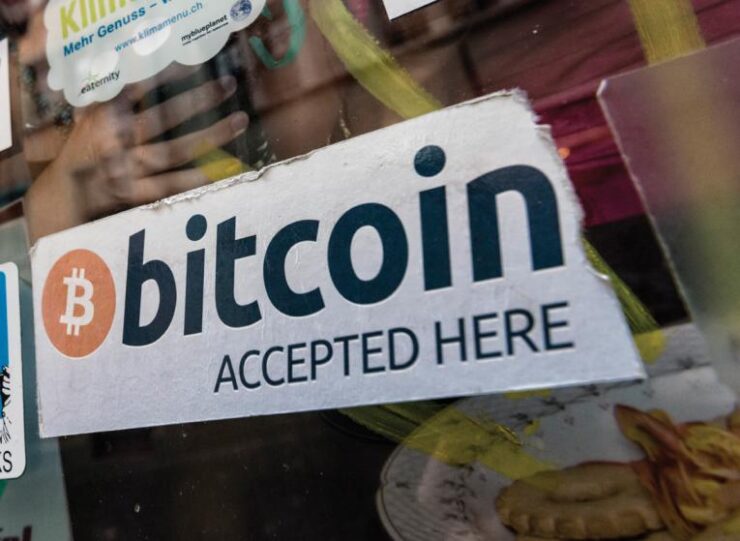Cryptocurrency is a digital currency developed based on the blockchain’s decentralized network. It first emerged on the scene in 2009 as an open-source project by a person or group called Satoshi Nakamoto, whose identity remains unknown.
Bitcoin was the first cryptocurrency established as a medium of exchange for products and services. The primary purpose of cryptocurrencies is to provide financial autonomy to their users by eliminating third parties like banks or credit card companies that may have fees attached to them.
Cryptocurrency markets are backed by blockchain technology (a decentralized public ledger) to facilitate transactions between two parties; they are tracked on ledgers that record all transactions. The number of cryptocurrencies has grown exponentially since their inception—over 1,600 at last count—and it’s estimated by 2025, there will be more than 15 million active cryptocurrency wallets worldwide!
How Can Crypto Take a Bite Out of Restaurant Costs?
One of the most significant benefits of using cryptocurrency is saving you money on your expenses. You do not need to worry about fluctuations in the value or price of your currency and lose money when converting currencies. Cryptocurrency is an alternative means of payment that allows customers to make transactions without paying any fees or commission costs. With this option, this could avoid high transaction and foreign exchange rates when accepting global payments.
With crypto-currency, there are no processing fees involved; therefore, you don’t need to pay anything extra while receiving payments from their customers via cryptocurrencies such as Bitcoin (BTC) and Litecoin (LTC). This makes it easier for restaurants and other food establishments that offer online ordering services. Customers can select their meals online before arriving at the location with just one click!
How Can Crypto Help Restaurants Increase Their Sales?

As more people become aware of the benefits of cryptocurrency and begin using it for payment, the number of crypto-accepting restaurants is also increasing. With so many reasons to accept crypto payments, restaurants may want to consider accepting cryptocurrencies as a new way to increase their sales. Here are three ways that cryptocurrencies can help restaurants:
- Cryptocurrencies are an emerging payment method. With more consumers actively using digital currencies and others looking at ways to get involved without investing in a cryptocurrency themselves, restaurants have a chance to reach a wider audience by accepting them as payment options.
- Cryptocurrencies are cheaper than standard credit card processing fees or cash registers. By using blockchain technology instead of traditional payment platforms like Visa or MasterCard, restaurants can avoid paying extra costs on top of whatever transaction rate they set for their customers—and these rates are typically higher than what banks charge for credit cards. Plus, many cryptos don’t require any intermediate steps between when you swipe your wallet and when you receive your meal; this makes paying more accessible and faster (especially if you’re already familiar with how crypto works).
- Cryptocurrencies offer better security than other forms of payment because they use encryption methods that make it impossible for anyone besides you—including hackers or criminals—to access any information about your purchases through blockchain technology.
Using Crypto to Buy and Sell Restaurants
Buying and selling restaurants is enormous, especially in the U.S. alone. In 2017 alone, there was more than $1 billion worth of restaurant sales from the top 10 largest chains, according to Restaurant Restaurant Magazine. Several companies specialize solely in selling or buying restaurants with cryptocurrency as part of their services. You can find out more about these companies by researching or following them on social media channels such as Facebook and Instagram(besides that, you can see more useful templates here).
One of the significant advantages of using crypto for buying and selling restaurants is that it allows you to avoid dealing with banks or other financial institutions when making transactions between parties who might not trust each other very much (such as two people negotiating over a joint-venture).
Cryptocurrency transactions do not require an intermediary like a bank because they do not require signatures from either party involved—all you need is an address where you can transfer funds into another account’s wallet online so they can access it later when needed! Crypto transactions can also be done at exchanges like OKX or Coinbase. This makes transactions more straightforward because they don’t involve complicated paperwork required by banks, which would take more time than necessary.
How to Integrate Cryptocurrency Into Your Restaurant?

You’re probably wondering how to get started with cryptocurrency payment processing. Here are some things you need to know:
- Choosing a cryptocurrency value to accept. If you have any experience with cryptocurrencies, it’s easy to see why this might be the first thing on your mind. The sheer number of different digital coins (or tokens) out there is staggering, and each one has its own set of features that make them more or less attractive for certain types of restaurants. Some coins have faster transaction times than others, while others offer lower transaction fees; knowing what features matter most to your restaurant will help you decide which type of coin(s) would be best suited for accepting payments.
- Cryptocurrency payment processors to use. Once you’ve decided which coins or tokens make sense for your establishment, it’s time to find a processor who will help you accept them at checkout! There are many companies out there offering such services—and if they don’t already support the coin(s) that work best for your restaurant’s needs, they can likely add support quickly once they’re made aware of the need—so choose whichever one seems best based on price and customer reviews (a good place like Trustpilot may even let customers leave feedback directly on their homepage). Remember, though: before signing any contracts with these processors or anyone else involved in transacting cryptocurrencies, always read all documents carefully. Hence, as not to sign anything blindly without fully understanding its implications!
- There are many ways cryptocurrencies can be used in the restaurant industry. One of the main ways is through blockchain technology, which consists of a digital ledger that records all transactions that have ever taken place. Blockchain technology has been used to create a new currency called cryptocurrency, which can only be transferred digitally and has no physical form.
- Cryptocurrency payments are one-way restaurants that can use blockchain technology to their advantage by accepting payment in exchange for goods or services using cryptocurrencies like Bitcoin and Ethereum. These currencies allow restaurants to avoid paying processing fees when making purchases online with credit cards or PayPal accounts; however, they come with some downsides, such as slow transaction speeds compared to traditional payment methods due to high-volume traffic during peak times (i.e., lunchtime). However, there are other advantages, such as lower fraud rates, especially when dealing with credit card payments, mainly because merchants don’t need access. You can find more about this at Guru99.
Conclusion

As you can see, crypto has the potential to transform the restaurant industry in a multitude of ways despite the high fluctuation in cryptocurrency prices. It can be used for more than just payment; it can create a transparent system of supply and demand that allows restaurants to understand their customers better and communicate with them. This can help restaurants attract new customers and retain existing ones by providing an appealing social experience.
There are still some obstacles to crypto adoption in the restaurant industry with all this said. The first is regulatory uncertainty. Many governments have yet to decide how to approach cryptocurrencies and blockchain technology—how to regulate them or treat them as private property vs. public recordkeeping systems like bank accounts (which are already regulated). In some countries like Germany, France, China, and Japan, there are already laws banning or restricting cryptocurrency use even though they haven’t been clearly defined yet due to a lack of clarity around how these technologies operate at scale within society overall yet; either way until something more concrete happens then my advice would be not today maybe later never if ever but not now because I wouldn’t want any part of that mess myself!

